Sometimes, changing the world means breaking the rules. There have been key moments in history defined by defiant acts, and the results often bring change unlike any that came before.
The people who instigate this kind of global change are frequently persecuted and vilified, but this often encourages them to fight harder.
Whether it was to bring change for one or for all, these ten people broke the rules to make the world a better place, and they’re presented in no particular order.
10 Archaeological Relics From The Life Of Jesus Christ
10 Galileo Di Vincenzo Bonaiuti De’ Galilei
Table of Contents
While the history of scientific observation has many prominent figures, few hold the candle to Galileo. The Italian astronomer, engineer, and physicist followed in the footsteps of Copernicus to find better ways of understanding the universe, and this ultimately resulted in the violation of several rules.
As a champion of Copernican heliocentrism, which was the theory that the Earth rotated daily as it revolved around the Sun, he came into conflict with the Catholic Church by declaring Copernicus’ theories proved that the Bible contained errors. The Church was largely responsible for the furtherance of academic study at the time, and his claims of Biblical errors were in opposition to the Catholic view. It should be noted, however, that the Church did not reject Copernicus or heliocentrism at the time but they did believe that Galileo was presenting his theories without sufficient proofs.
Galileo was tried by the Roman Inquisition in 1633 and found “vehemently suspect of heresy” and was forced to recant his views. He spent the remainder of his life under house arrest. Still, his work influenced others, leading to the further development of observational astronomy, modern physics, and the scientific method. Since his death, Galileo has become known as the father of modern science.
9 Gaius Julius Caesar
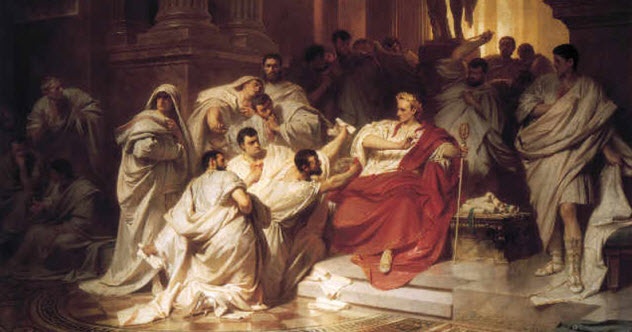
Looking back into Roman antiquity, there’s no bigger rule breaker than Gaius Julius Caesar. When Caesar’s Governorship came to an end, he was summoned back to Rome by the Senate. He was also ordered to disband his army and not bring his forces across the Rubicon River.
When he came to the Rubicon on January 10, 49 BC, he stopped for a moment and came to a decision. He crossed the Rubicon with his entire force, breaking a very sturdy Roman rule that prohibited any Roman army from crossing that line into the country.
When he crossed, he said, “Alea iacta est” (The die has been cast), and he wasn’t kidding. His action precipitated the Roman Civil War, which pitted an incredibly popular Roman General against the Senate, who wasn’t as beloved by the people as Caesar.
Breaking that rule resulted in a war, which ultimately saw Caesar declared Dictator for Life. When he was killed (by the Senate), his adopted heir took his place and brought the Roman Republic down. Gaius Octavius (Augustus Caesar) then built the Roman Empire, which stood, in one form or another, for more than 1,400 years.
8 Rosa Parks
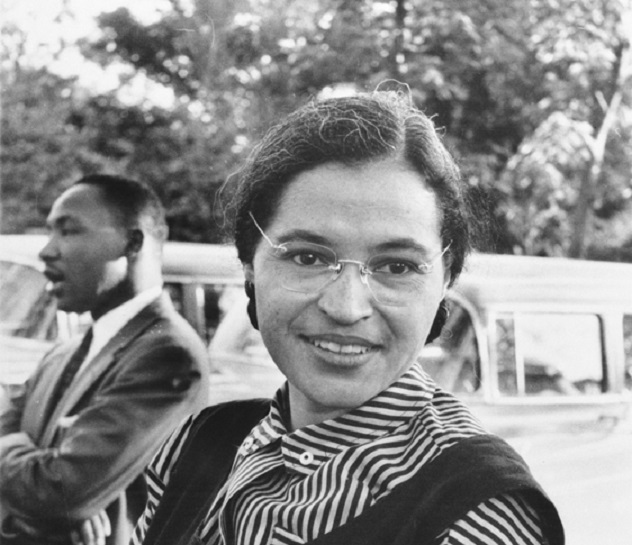
Rosa Parks was active in the Civil Rights movement in the 1950s, but she didn’t come to truly break the rules until December 1, 1955. On that day, Mrs. Parks was ordered to leave her seat on the bus to make room for a white man by James F. Blake. He insisted she move to the back of the bus’ “colored” section.
Parks refused and was arrested for civil disobedience. Parks wasn’t the first person to find themselves in a similar situation. Still, she stood out to the National Association of Colored People (NAACP). The organization rallied behind Parks’ challenge to her arrest, which led to the Montgomery bus boycott.
The 381-day boycott of the Montgomery bus system put intense pressure on the city, and the event helped galvanize the people into further action. In 1956, the Supreme Court of the United States ruled in Browder vs. Gale, finally putting an end to legal segregation on Alabama’s public transportation system. (LINK 2)
The Civil Rights movement in the United States grew from Parks’ example and the SCOTUS decision. She helped stir the people to further action, resulting in greater progress that finally saw an end to legal segregation in the United States by 1968.
7 Nelson Mandela
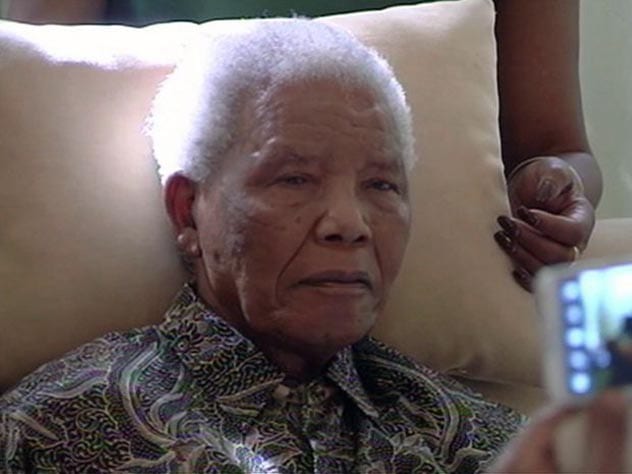
South Africa utilized a legal system of institutionalized racial segregation called Apartheid, beginning in 1948. The system was put in place to guarantee the nation’s politics, social structures, and economy all favored the minority white population.
Apartheid was widely despised by the majority black population, but it was challenging to overcome. Many people tried to resist, but they found themselves locked up for their efforts more often than not. Nelson Mandela spoke out against Apartheid from its inception, and he challenged it vocally.
Between 1948 and 1956, Mandela was arrested and jailed on charges ranging from sedition to treason. He joined the South African Communist Party and committed to nonviolent forms of protest. Then, in 1962, he led a sabotage campaign against the government, resulting in his imprisonment for conspiring to overthrow the state.
Mandela continued to break the rules by challenging the legally established doctrine of Apartheid, even after he was imprisoned for life. Finally, he was released in 1990, and his continued efforts helped end Apartheid and establish a new nation in South Africa. In 1994, he won the office of the 1st President of South Africa.
6 Mohandas Gandhi
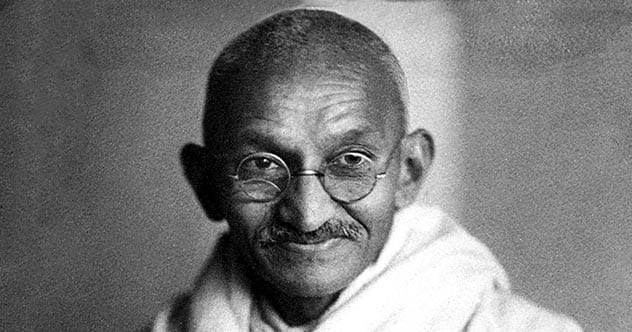
Mohandas Gandhi studied to become an attorney in London before returning to his native India to practice. This proved difficult, so he moved to South Africa, where he remained for 21 years, building his practice and family. By the age of 45, he returned to India, where he organized peasants, farmers, and laborers to protest against discrimination.
Gandhi became the leader of the Indian National Congress in 1921, launching campaigns to ease poverty and expand civil rights. The following year, he was arrested for civil disobedience and sedition when a protest he organized turned violent. Twenty-two people were killed, deeply affecting Gandhi and his way of thinking.
After serving five of six years in prison, he returned to his role advocating peaceful protest. His adherence to nonviolence helped inspire a massive anti-colonial movement. In 1930, he led the Dandi Salt March, marching 250 miles (400 km) to speak out against the unfair tax.
Decades of nonviolent protest finally saw British rule of India come to an end. Throughout his life, Gandhi broke numerous rules that saw him imprisoned. Still, he continued despite the hardship and helped free a nation from colonial rule without shedding a drop of blood.
5 Martin Luther
Few religious leaders have had as divisive an impact on history as Martin Luther. The Augustinian monk became a priest in 1507, though he never accepted all of the teachings and practices of the Roman Catholic Church. He was particularly disapproving of indulgences, which offered a way for an adherent to reduce the temporal punishment for their sins (in part, in partial indulgences; and in full, in plenary indulgences)
More specifically, a donation to the Church along with prayers resulting in the granting of an indulgence was distasteful to Luther, so he did something about it. In 1517, Luther nailed up his Ninety-five Theses to the door of the Wittenburg Church. The Theses were meant to initiate an academic discussion on the practice of indulgences, but it went way beyond that.
Luther was called to renounce his writings by Pope Leo X in 1520, but he refused. He did so again when the Holy Roman Emperor Charles V demanded it at the Diet of Worms in 1521, resulting in his excommunication. He was declared an outlaw by the Emperor.
From there, Luther became a seminal figure in the Reformation, which ultimately resulted in a schism. This led to the development of Lutheranism and every other Protestant religion that followed.
4 Dr. Martin Luther King Jr.
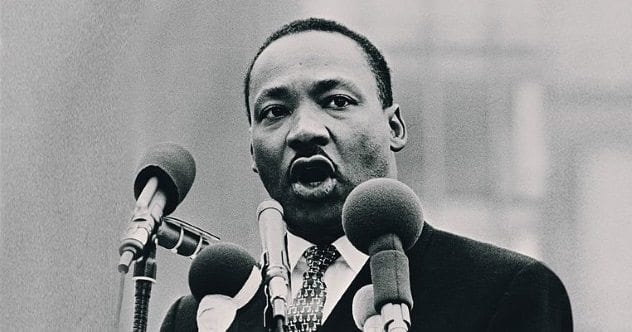
If the Civil Rights movement in the United States had a face, it would belong to Dr. Martin Luther King Jr. The Baptist minister from Atlanta, Georgia, stood out among his peers as a national leader who participated and led marches for a number of civil rights issues prevalent in the United States through the 1950s and ‘60s.
King was the leader of the 1955 Montgomery bus boycott that helped bring an end to legal segregation in Alabama’s transit system. He followed this by becoming the first president of the Southern Christian Leadership Conference, which led to further movements in Georgia before he was elevated to national visibility via his 1963 March on Washington.
The following year, he was awarded the Nobel Peace Prize for combating racial inequality through nonviolent resistance. King spent his adult life fighting for the rights of people oppressed because of the color of their skin. His work helped change the world by bringing an end to legalized segregation.
Throughout his life, King was arrested 29 times for breaking various rules. His arrests came from nonviolent protests, prayer vigils, and so-called “civil disobedience” laws that saw him spend his fair share of time behind bars.
3 Susan B. Anthony
Susan B. Anthony was committed to social equality throughout her entire life. Most people think of her as one of the initial leaders of the suffrage movement, but her work towards equality began with a different cause. Anthony started collecting anti-slavery petitions at the age of 17, nearly 30 years before slavery was finally ended in the United States.
In 1856, she became the New York state agent for the American Anti-Slavery Society. She collected hundreds of thousands of signatures in support of the abolitionist movement. She founded the Women’s Loyal National League and initiated the American Equal Rights Association the year after slavery came to an end.
Her work in the Suffrage movement intensified throughout the 1860s, but it wasn’t until 1872 that she broke a rather important rule. Anthony voted in Rochester, New York, and was subsequently convinced in a widely publicized trial. Anthony steadfastly refused to pay the fine for her criminal activity but faced no further punitive action.
Anthony’s lifelong commitment to activism pushed for crucial social change. Fourteen years after she died, the 19th Amendment to the U.S. Constitution was passed in 1920, giving women the right to vote. It is colloquially known as the “Susan B. Anthony Amendment.”
2 Leonardo Da Vinci
Nearly everything Leonardo da Vinci did was ahead of his time. His works include drawings for submarines, tanks, and airplanes long before any were finally created. His illustrations and paintings are some of the world’s greatest treasures. One aspect of his work that broke the rules and helped change the world was his work in medicine.
Few people think of da Vinci in terms of his impact on medicine, but he was instrumental in helping humanity understand the human body. Da Vinci was fascinated by anatomy and sought to learn as much as he could about it. He collected various body parts and dissected at least 30 corpses while engaged in his study.
Using cadavers for that sort of research wasn’t allowed at the time, resulting in an accusation of “unseemly conduct” and possibly witchcraft upon his return to Rome, which put an end to his anatomical studies. His work remained unpublished and wasn’t discovered for centuries.
Da Vinci’s anatomical studies confirmed that the heart was the center of the blood system (instead of the liver). His work helped further influence 19th and 20th-century medical practices. His anatomical illustrations were so accurate that they helped guide a cadaver dissection 500 years after completing them.
1 Jesus Christ
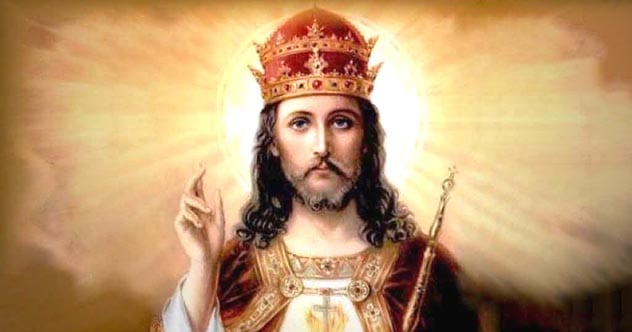
Jesus Christ was born in Bethlehem around 4 BC to the Virgin Mary and Saint Joseph, who raised Him in the Galilean town of Nazareth. While most of the details of His early life remain a mystery, it is believed that He grew up to follow in His father’s footsteps, working as a carpenter and tradesman.
Despite this, He came to declare himself the Messiah, at first in the north of Judea, in Galilee. He was largely accepted there, and He then took it to Jerusalem, where He was referred to by some as “rabbi.”
Ultimately, it wasn’t the fact that Christ preached His ministry that broke the rules; it was the nature of what He spoke about and the fact that He declared Himself God (“Before Abraham was made, I Am.” St John 8:58). Jesus’ teachings centered around rejecting the Talmudic laws of the Pharisees and fulfilling the original Jewish faith as clarified by Him and the apostles He taught (the first Bishops and Popes). Still, many saw His words as subversive and against the doctrinal teachings of the Talmud and the extreme social regulations of pharisaical Judaism, dominant at the time.
He ran afoul of the priests and rabbis in Jerusalem and was vilified. Eventually, He was betrayed, captured, tortured, and crucified by the Romans at the behest of the Jewish leadership. His teachings had a significant impact on Judaism, resulting in the schism that gave birth to the Catholic Church, changing the course of human history for the next two millennia.
Top 10 Misconceptions About The Catholic Church
